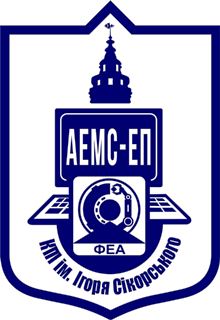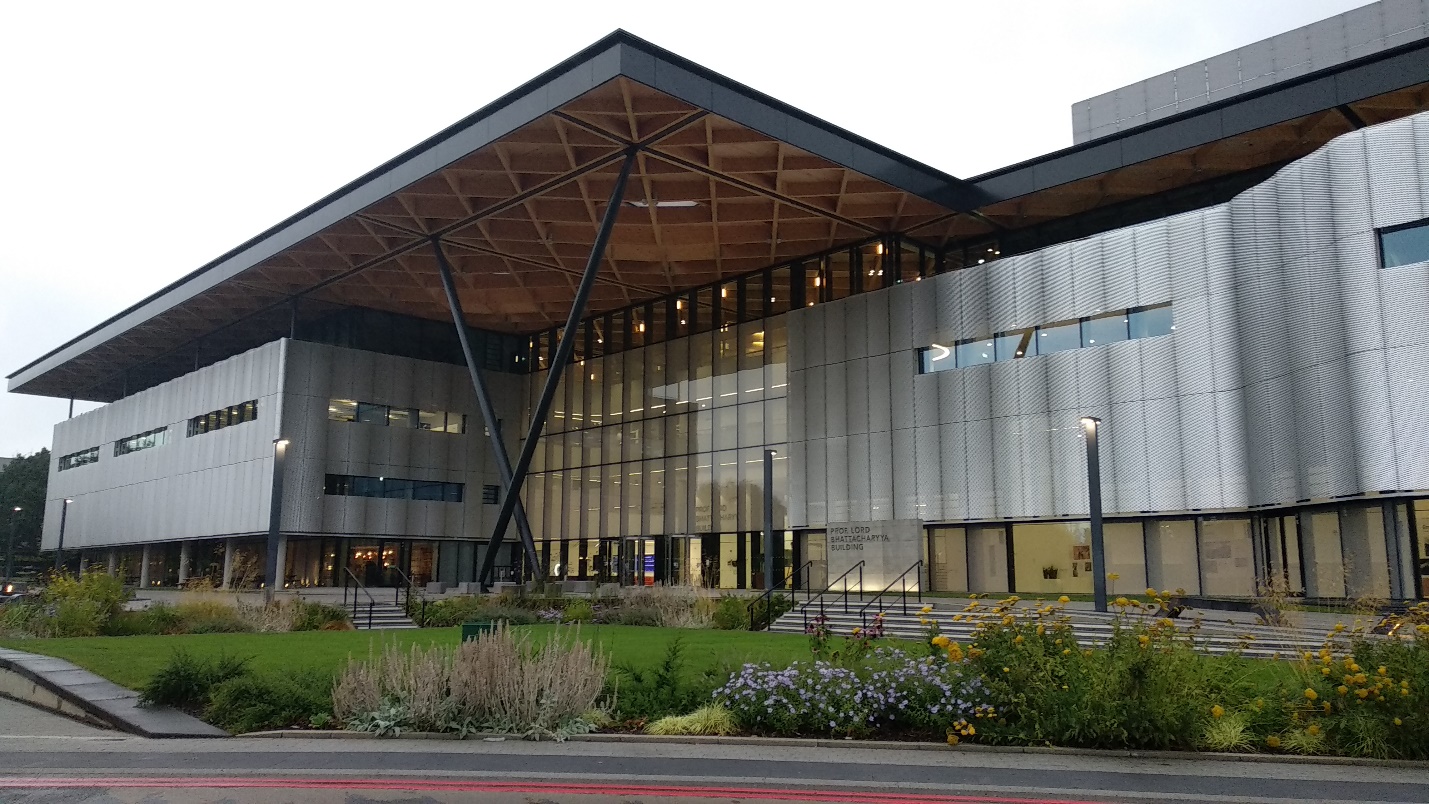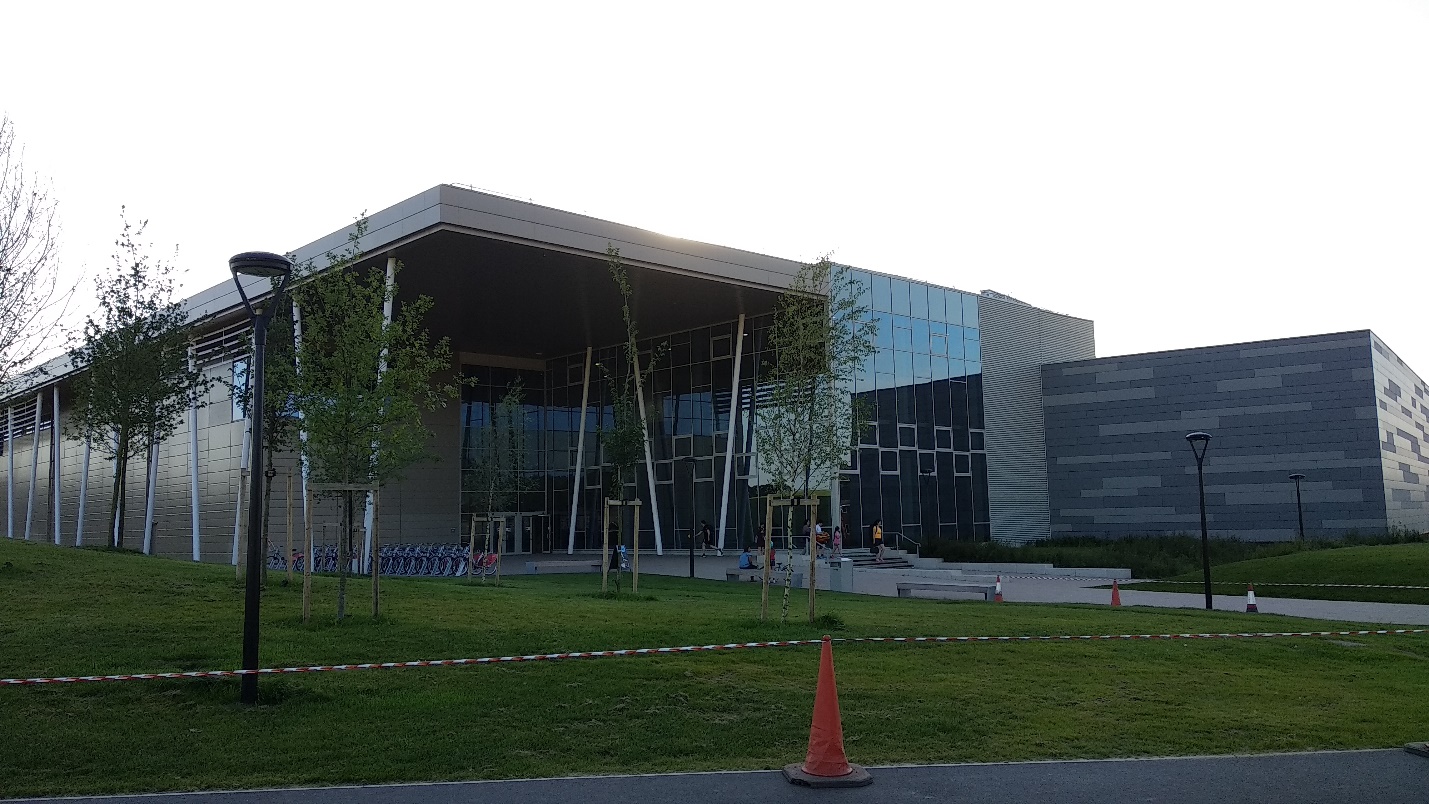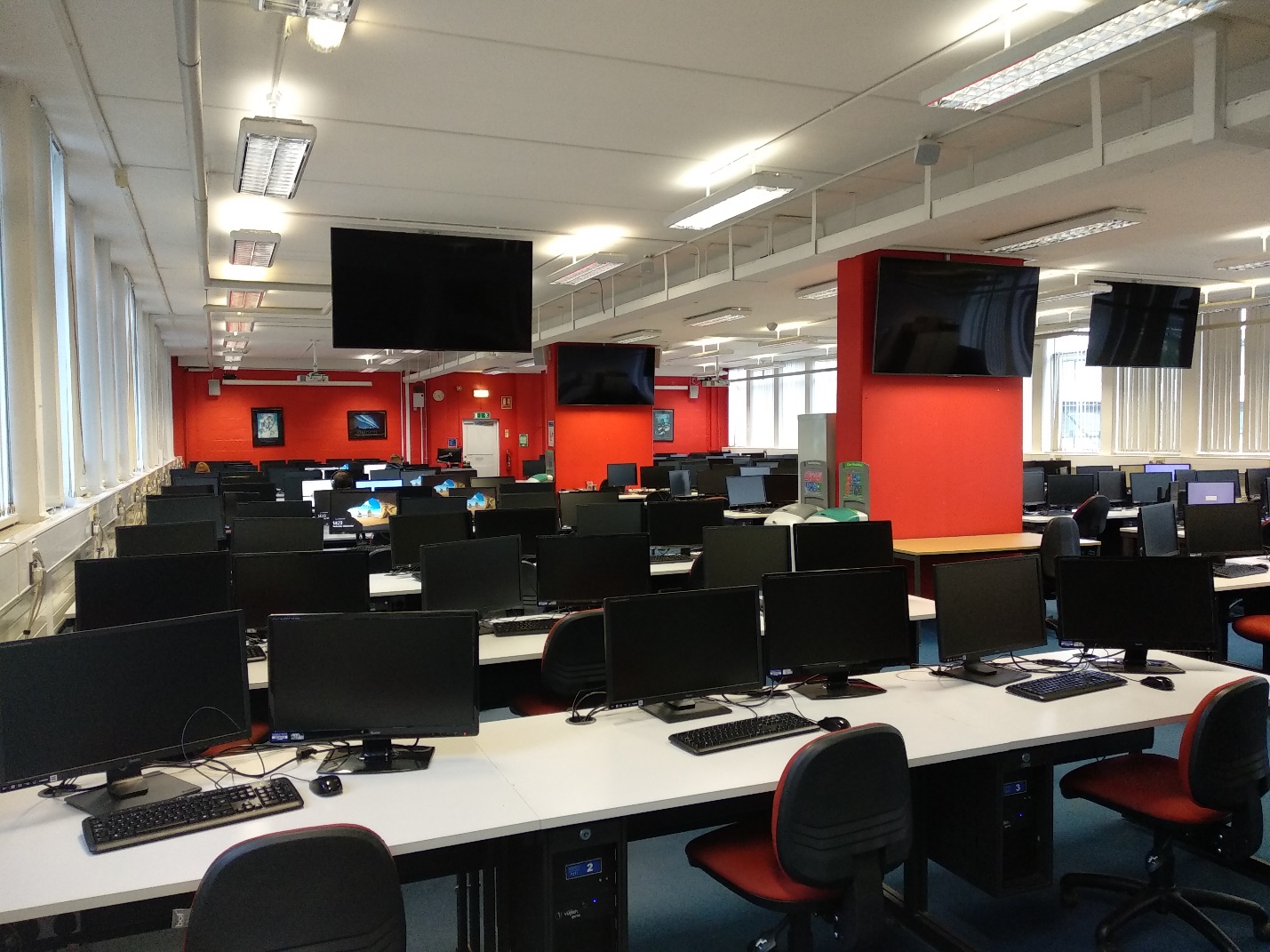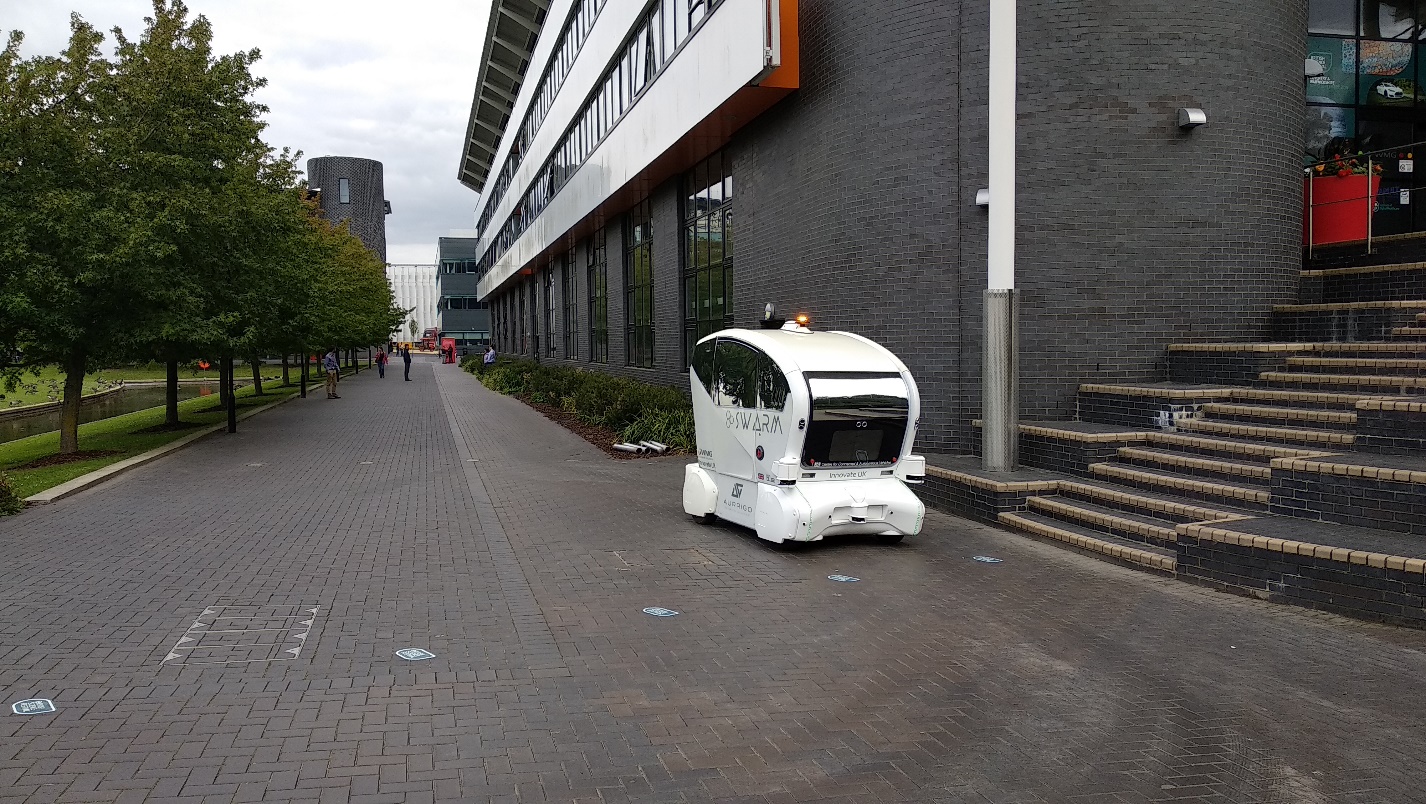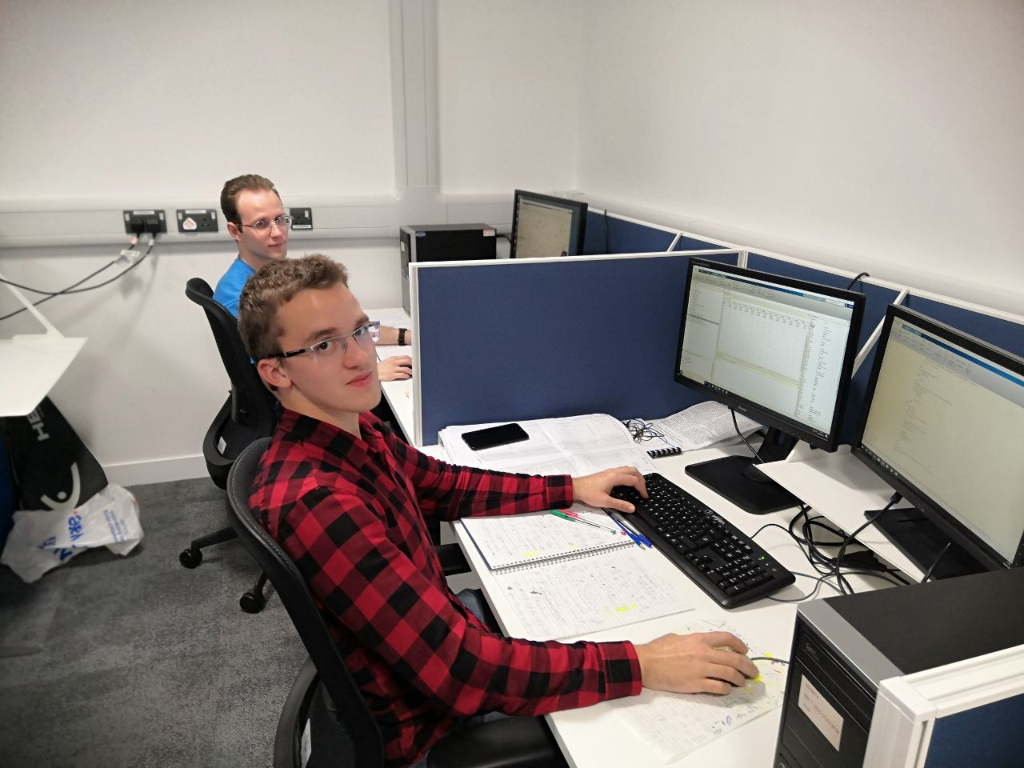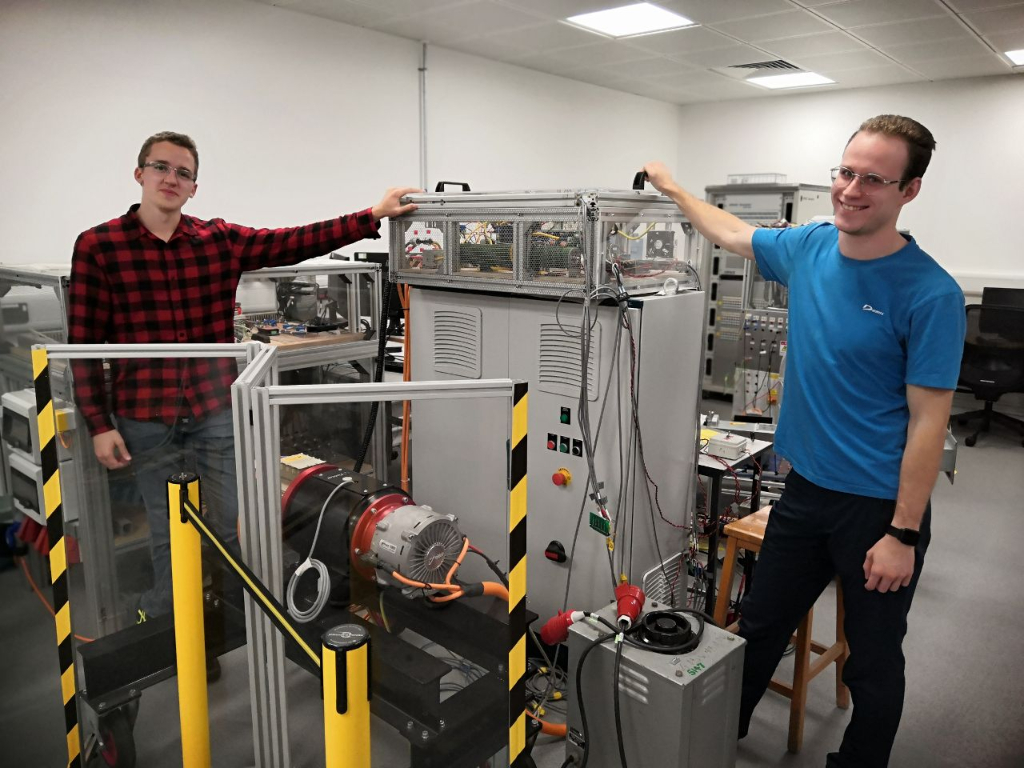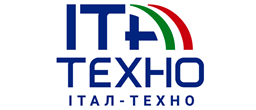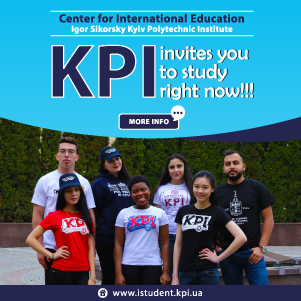From the head of the department, Sc.D. prof. S. Peresada
In accordance with the Erasmus+ program, students and teachers of the Department of automation of electromechanical systems and electric drives of the Faculty of Electrical Engineering and automation completed a research internship at the University of Warwick, Coventry, United Kingdom. In total, two master’s students of the 1st and 2nd courses, two postgraduates, and four teachers took part in the program. Students had the opportunity to live in university dormitories, attend classes, conduct scientific research in laboratories, and travel around the country. Participants of the program, students Dmitry Rodkin and Alexey Zinchenko, saw a lot of useful things during the four months of the internship and decided to share their impressions, experience of studying and scientific work at a British university.
As a preface. We, the scientific masters of the Department of automation of electromechanical systems and electric drive of the Faculty of Electrical Engineering and automation, were lucky enough to take part in the Erasmus academic mobility program+. This was a big challenge, as we were not only traveling to Europe for the first time, but also to the world’s leading university. Some of the complexities that we had quickly passed when we realized that our training was decent. The subject matter and level of scientific research that we performed in the Department’s laboratories were evaluated and we were given opportunities to conduct independent research on equal terms with graduate students and full-time researchers of the University.After four months of working at Vorik University, communicating with students and postgraduates from different countries, we can say that our Ntuu “Igor Sikorsky Kyiv Polytechnic Institute”, despite the difficulties in the country, is a world educational and scientific center.
University. Warwick University is a classical university located near the city of Coventry, which is located east of Birmingham, in the central part of the United Kingdom. The university was founded in the mid-twentieth century, and it is quite young among European universities. However, this does not prevent it from constantly entering the top five-the top ten most prestigious British universities. Everything you need for training is concentrated on the territory of the University in a single campus, as it is located on the outskirts of Coventry. The university campus includes buildings for study and research, dormitories, cafes, shops, a sports complex, a hospital, laundries – that is, everything that a student may need during their studies. The university has about 30 thousand students, most of whom are foreigners [1].
At the beginning of training, each student receives their own ID card, which serves as a pass to the relevant laboratories, rooms and sports center if they have a subscription. It is also possible to deposit funds on this card to get a discount in local cafes. The student receives an account and email address in the University database along with a personal card. Almost any issue can be resolved by electronic correspondence with the relevant authority. Registration for any events, communication with teachers, an application for accommodation in a hostel – everything happens in electronic form. This communication and access system provides a reliable and convenient security system with multi-level access and communication for staff and students.
Since the purpose of our stay was a scientific internship, we were given access to computers and a test unit in Power and Control Systems Research Laboratory [2]. With the acquisition of an account, we have access to the university library, as well as access to the IEEE Xplore Digital Library and other global databases.
Learning process. During the internship, we attended several courses of lectures related to our specialty. Each audience has a projector or large screen. Most teachers give lectures based on presentations, which makes the pace of lectures quite high. To fully understand the material, the student must finalize the lecture material independently. For individual demonstrations of printed material in classrooms, there are special cameras standing above the teacher’s desk. The lecturer connects a microphone at the beginning of each lecture and it is recorded in the University database for re-viewing. The lecturer is also captured by a special camera during the lecture, which increases safety in the classroom and makes it easier for students to repeat the lecture material. All students registered for the course have access to the lecture recording, as well as to all necessary materials through their account. The duration of the lecture is one hour without a break.
During the semester, students study subjects that cover different areas of knowledge. According to the concept of British classical universities, the University of Warwick trains specialists of a very wide profile in The Bachelor’s program (three years [3]). Unlike technical universities, the depth of the material is less (including in comparison with the Igor Sikorsky KPI), which we saw from the lectures we attended. We made this conclusion because the content of the material was known to us. We had the opportunity to attend several lecture cycles of our choice. The level of teaching of the material is certainly high. We were very pleased that one of the teachers was a graduate of our department, its former teacher, Professor A. I. Kiselichnik.
Special attention should be paid to the system of assessing students ‘ knowledge and skills.Exams are written and conducted without the participation of a lecturer. The student receives a ticket consisting of many short tasks, mostly tasks that need to be solved. The lecturer and the inspecting professor evaluate the work provided by students based on reference answers in anonymous mode, when the names of students are unknown. A learning outcome for a group of students is considered good if the average score is between 3 and 4 on a five – point scale. Cases of dishonesty are usually absent because they are punished very severely.
Students. In general, the education system and the principle of lecturing require significant independent work from the student. Lectures serve more as a detailed plan that a student should follow to successfully pass exams and acquire skills and abilities than as the main source of knowledge. Therefore, as a result, more material should be processed by students independently. In our opinion, students are highly motivated to learn. There are places for students, including specialized classrooms, for independent work. And here, as for the Igor Sikorsky KPI, the prestige of studying at this particular university is very important. The university provides scholarships for students paid for by enterprises.It is not easy to get into such a program, but after completing their studies, the student has a guaranteed employment at this enterprise. Such opportunities encourage students to learn. Studying at the University is paid and expensive, and for foreigners it is very expensive.
An educators. We saw that the academic load of professors is not very different from what is available at the Igor Sikorsky KPI. Thanks to the automation of the organization of the educational process, they are not engaged in administrative and organizational work, and travel a lot on scientific matters. All working hours, except for conducting classes, work in their offices. The student can only apply to the professor according to the established schedule. It is also important that the areas of stay of teachers and students are separated.
Research Laboratory. We spent most of our working time in the Laboratory of power systems and control systems. Conventionally, it can be divided into 4 sections: workplaces, laboratory stands, a kitchen and a warehouse with tools. The test units are located next to each other and are very cramped due to lack of space. However, at the same time, almost all stands are easy to move, which increases their mobility and makes it easy to rearrange them. Technologically, the research installations of our direction in this laboratory and our department are not too different, except that here the equipment is more expensive, and it is obtained easily and quickly at the expense of the faculty.
Most of the people who work in the lab are graduate students. The working time schedule is not set, so they work independently for as long as necessary. Once a week, there is a meeting with the supervisor to share the results and plans for the work.
Free time and dormitories. The difference in comparison with Kiev dormitories for students is that every year students are evicted from their dormitories during the holidays. After the first year, students should settle in more expensive and better equipped dormitories.
In their free time, students can go to the Sports Complex, walk around the surrounding area, go to neighboring cities, relax in dormitories, meet inside them or go to cafes.
Dormitories are formed by small neighborhoods with their own architecture. It is convenient that all rooms are designed for one student. In addition to dormitories, students can rent rooms, apartments or houses in the surrounding cities. This system is provided by a very convenient transport network of buses, taxis and trains.
Scientific work was carried out. During the internship, we performed theoretical and experimental studies on identifying the parameters of a synchronous explicit-Pole Machine with permanent magnets, taking into account saturation effects, which became a logical continuation of the work started at the Igor Sikorsky KPI. Based on the results obtained, two joint articles were published in publications that are part of the Scopus scientific metric database. D. Rodkin prepared and defended his master’s thesis in English, he successfully passed the postgraduate exams and will continue his research at the department in the direction he started. A. Zinchenko is working on his master’s thesis, which is also based on the results of joint results with British scientists.
Social aspects. In addition to scientific research, we communicate with students, postgraduates and teachers, as well as only with the British. Some of the people, as it turned out, know relatively much about Ukraine and were interested in information about the situation in the country. People in the UK are quite relaxed and warm about friendly conversations, which also allowed us to improve our knowledge of English.
During this time, we have gained not only new scientific results, but also significant life experience. It was important to confirm that we are not inferior to British students in anything, and the attitude towards students depends not on what country they are from: Germany, China, Ukraine or Turkey, but on how they do business, study and know the language, history and culture of the country in which they are located. We have always remembered that we represent Ukraine and our Kyiv Polytechnic Institute.
Thanksgiving.We would like to thank our supervisors, Professor A. I. Kiselichnik from Vorik University and Professor S. M. Peresada from Igor Sikorsky KPI, who organized the program and led scientific research.
Photos of the experimental setup and workstations are attached below
Посилання
[1] Vorik University website, URL: https://warwick.ac.uk/about/profile/people/
[2] Vorik University website, URL:https://warwick.ac.uk/fac/sci/eng/research/grouplist/electricalpower/pcsr/
[3] Vorik University website, URL:
https://warwick.ac.uk/study/international/immigration/tier4/length/5-year_cap_on/
